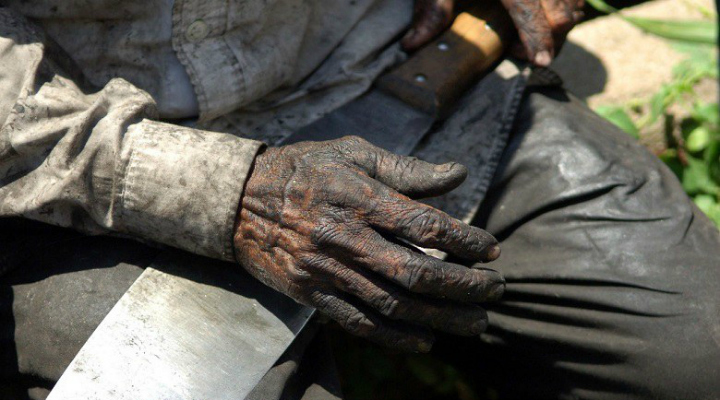Strategies to conceal rights violations in production chains in Brazil; read the research paper
Document produced by Conectas lists strategies used by corporations to avoid accountability for abuses
 Foto: Renato Alves/MTE
Foto: Renato Alves/MTE
The concealment of human rights violations in production chains is a practice adopted by major companies in Brazil. The second part of the report ‘Slave labor in coffee: from farms to multinationals’, published by Conectas, reveals these strategies used by corporations to avoid accountability for abuse. Click here to access the publication.
The text, part of the global project Mind the Gap, led by the Dutch organization SOMO, is a taxonomy of ways in which companies dodge their responsibilities regarding human rights violations and environmental damage. The first part shows how gaps in Brazilian legislation and governance make it difficult to hold companies with complex supply chains accountable, hindering access to justice and reparations for victims.
The second part investigates corporate tactics to exploit these loopholes and evade accountability. The analysis is not limited to the coffee industry; rather, it covers sectors vulnerable to the occurrence of slave labor and other human rights violations.
Read more
Brazil in the fight against violations in production chains
In recent years, European countries have put forth legislation that requires companies to observe human and environmental rights. In Brazil, draft bill PL 572/2022 proposes more advanced requirements, but faces resistance in Congress, dominated by ruralist congresspeople.
Meanwhile, there is a predominance of voluntary ESG (environmental, social and corporate) governance practices, which are insufficient to prevent and remedy violations. Under the ESG discourse, companies often hinder the reporting process and transfer responsibilities to the most vulnerable links in the production chain.
Corporate strategies to create, maintain and exploit gaps
The report presents several corporate concealment strategies, including the rapid approval of laws that make environmental licensing more flexible, for the benefit of major corporations and to the detriment of the rights of vulnerable groups, attacking the country’s biomes.
Another reecurring tactic is the misuse of legislation to hinder access to crucial information. One such case is the use of the General Data Protection Law (LGPD, acronym in Brazilian Portuguese) to restrict access to labor inspection reports, hindering research and the fight against slave labor.
Companies also take advantage of legal loopholes, such as the “forum non conveniens” thesis, which argues that only the country where the violation occurred has jurisdiction to judge the case. This complicates actions for reparation, such as the environmental disasters in Minas Gerais.
Another point addressed is the fragmentation of production chains, which allows companies to claim difficulty in monitoring and exclude smaller suppliers or service providers, without adjusting their operations to avoid future violations.
The report also highlights corporate influence over the Judiciary branch: between 2017 and 2022, 40 employers were removed from the “Dirty List” of slave labor by court decisions, thus diminishing the strength of an important instrument in the fight against slave labor.
Challenges and possibilities
Risk assessment mechanisms in Brazilian production chains have proven insufficient to prevent violations. The complexity of these chains, coupled with the absence of mandatory parameters, hinders attempts at effective monitoring. The report emphasizes the need for laws that impose human rights due diligence, with clear and strong international standards for accountability and transparency.
In order to overcome concealment strategies, one must involve the main actors in the production chains and enact structural changes, including the eradication of predatory practices. The study concludes by highlighting the key role of civil society and the importance of international alliances in addressing these violations.






